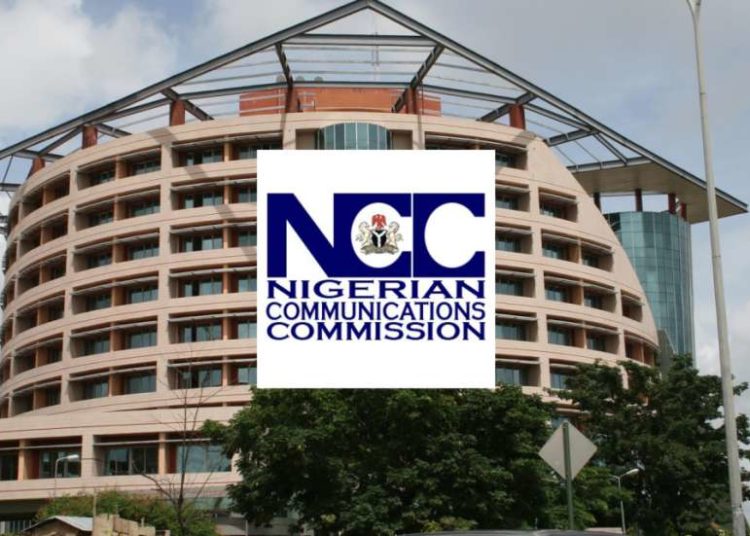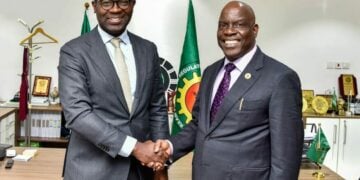The Nigerian Communications Commission (NCC) has called for the total exemption of excise duty on telecoms services. This is even as it affirmed that services being provided by telecoms operators are not luxury services.
The executive vice chairman, NCC, Prof. Umar Garba Danbatta, who made the call at the Telecom Executives and Regulators Forum (TERF) organised by the Association of Telecommunications Companies of Nigeria(ATCON) in Lagos, averred that, there are about 46 different taxes directed at the telecom sector at the moment.
“Such charges and levels, coming in various names, are imposed on telecom operators by some agencies and tiers of government, especially at the state and local levels. This translates into greater economic burdens on telecom subscribers in the country,” he stated.
While commending the Tinubu-led administration for the suspension of the five per cent excise duty on telecom services, the EVC however called for total exemption, as the services being provided are not luxury services.
“When the federal government attempted to introduce the five per cent excise duty on telecommunication services, I remember we listed 41 levies, taxes, and charges that have been forced on telecommunication companies in the country. And now, the number has gotten to 46. The immediate past president Buhari had approved the exemption of telecom from the excise duty. It, however, came as a total shock to us when the duty came up again in the Finance Act amended by the National Assembly.
“President Tinubu again suspending the excise duty is a good sign and I assure you that we are going to continue to argue convincingly that the duty on telecommunication services should not only be suspended but telecommunication services should be exempted from excise duty because the excise duties are paid on luxury items and telecommunication services cannot be considered as a luxury. Telecommunication services have become very much a part of our individual lives, and they affect more than 220 million Nigerians.
“The planned five per cent excise duty was going to be borne by the millions of subscribers. You can imagine, what would be the implication if that was implemented. Many would not be able to continue using these important services. So, we are delighted with the suspension but we have engaged our minister to draw his attention to the need to really exempt the sector from this duty altogether.”
In the same vein, the president of ATCON, Mr. Tony Emoekpere, highlighted multiple taxations as one of the challenges faced by industry players, while calling on the government to address all the bottlenecks to further boost the industry.
Meanwhile, the telecommunications sector’s contribution to the nation’s Gross Domestic Product (GDP) has increased to 16 per cent in the second quarter of 2023.
The executive vice chairman of the Nigerian Communications Commission(NCC), Prof. Umar Danbatta disclosed this while delivering his keynote address at the annual Telecom Executives and Regulators Forum (TERF) hosted by the Association of Telecom Companies of Nigeria(ATCON) in Lagos.
According to Danbatta, from a 14.13 per cent contribution in the first quarter of 2023, and up from the hitherto 15 per cent all-time-high record contributed in the second quarter of 2022, the telecommunications sector added 16 per cent to the national GDP in the second quarter of 2023 to set a new record.
“From about eight per cent contribution to GDP in 2015, when i came on board as the EVC of NCC, quarterly GDP has increased significantly to reach its current threshold of 16 per cent and that this has continued to positively impact all aspects of the economy,” he further disclosed.
Through sustained regulatory excellence and operational efficiency by the commission, Danbatta said, the industry has grown in leaps and bounds over the past two decades and this has impacted on all other sectors of the economy. The effective regulatory regime emplaced by the NCC and with the support from all stakeholders has been our major success factor as an industry, the EVC posited.
He stated that, while there are barriers to broadband deployment in the country, ranging from the issue of right of way (RoW), fibre cuts, high capital requirement for deployment, multiple taxations and regulations, among other challenges, the NCC is navigating regulatory complexities, digital divide and literacy, security concerns with firmness and increased collaborations with necessary stakeholders such as ATCON to create measures towards tackling the challenges.
He assured that various regulatory efforts are ongoing, adding that, “the NCC is confident that we are going to reach 50 per cent broadband penetration threshold by the end of 2023 and by 2025, we would have met and possibly surpassed the 70 per cent broadband penetration target, as contained in the Nigerian National Broadband Plan (NNBP), 2020-2025.”
The EVC particularly commended ATCON and its members for being partners in progress and for constantly engaging the commission in constructive ways towards finding solutions to the myriad of challenges confronting the industry.
“These challenges can be overcome through determination, innovation, and strategic planning. By focusing on the success factors and addressing the barriers, we can create a future where every Nigerian have access to the opportunities that the digital world offers,” he added.
Danbatta also stated that, the success of the nation’s digital aspirations is beyond technological advancements but also about transforming lives, driving economic growth, and ensuring that a nation remains competitive on the global stage. “As we work together to navigate this path, I enjoin all our stakeholders in the public and private sectors to remain committed to building a brighter and more connected future for our country,” he affirmed.





